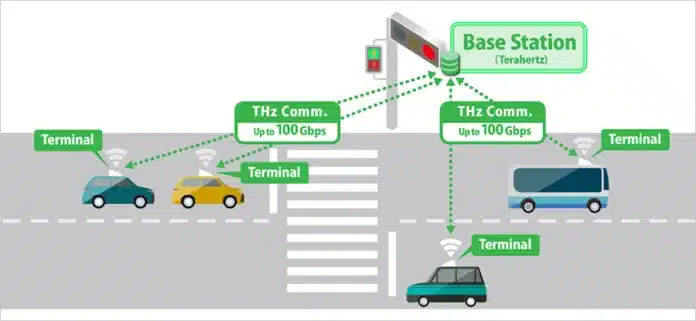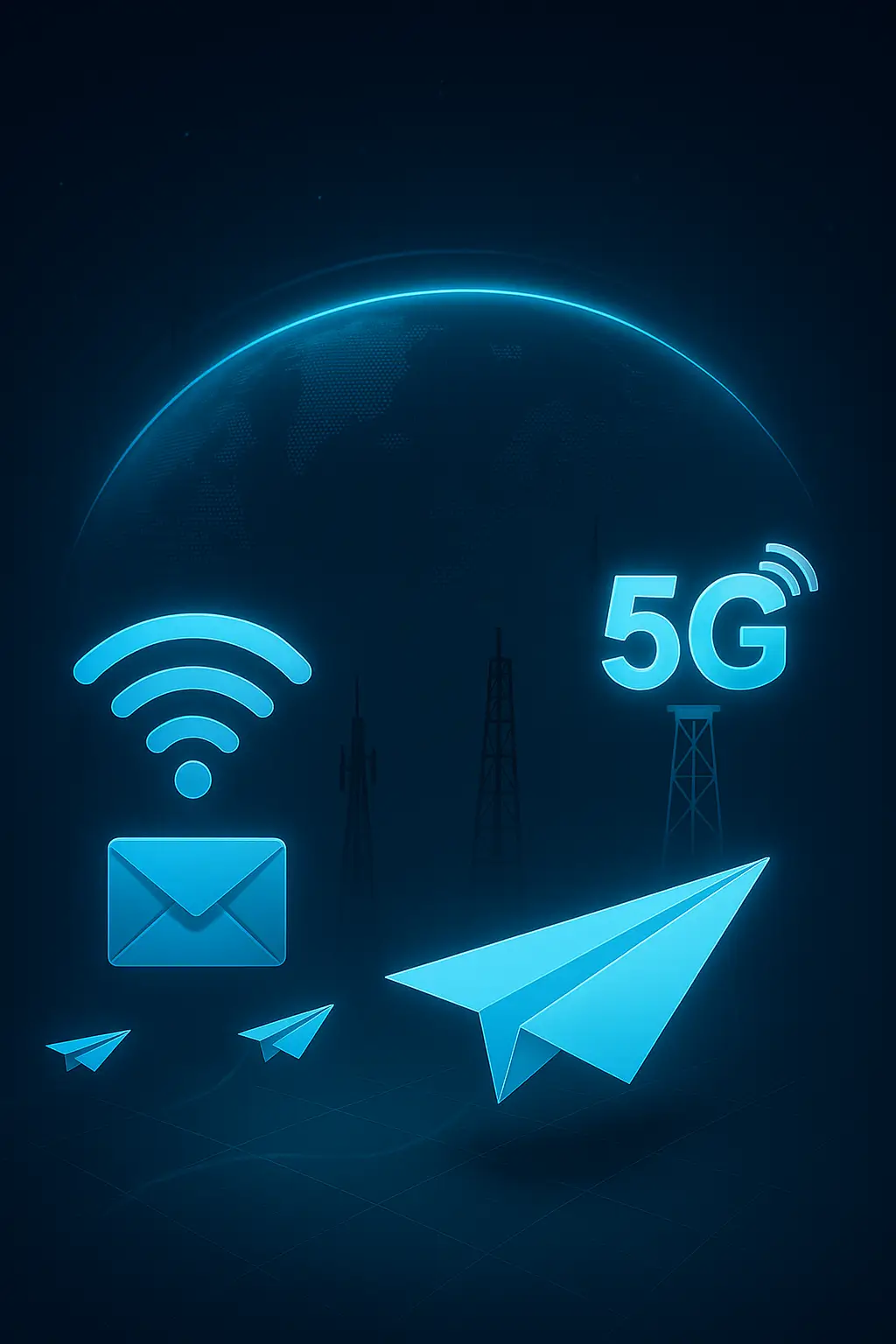SoftBank has successfully demonstrated outdoor coverage for connected cars using its proprietary antenna technologies under “Beyond 5G/6G terahertz” conditions. Previously, terahertz communication was thought to be suitable primarily for Fixed Wireless Access (FWA) or Near Field Communication due to its propagation loss. However, in this field trial, SoftBank confirmed the reliability of terahertz communication for connected cars, even beyond line of sight. To address the challenges associated with using terahertz beams, such as power dispersion, SoftBank conducted a verification experiment to establish terahertz coverage specifically for vehicles by limiting the communication area to roadways. This approach minimizes power dispersion and extends the communication area for vehicles in outdoor environments.
Traditional base stations use high-gain sector antennas that transmit radio waves with a wider horizontal pattern and a narrower vertical beam. This can lead to a weaker receiving signal closer to the macro base station compared to slightly further distances. To address this issue for vehicle-oriented terahertz wireless communication, SoftBank created a communication area with narrower horizontal coverage and wider vertical coverage, ensuring stable connectivity along the traffic direction.
#### Antenna Technology
SoftBank utilized the characteristics of a cosecant squared beam pattern, a technique used in aviation radar. This pattern ensures a constant power level at both the base station and the terminal, regardless of the horizontal distance between antennas with different heights. To achieve this in communication, SoftBank developed a proprietary cosecant pattern antenna for both the base station and the terminal. This allows for high antenna gain and constant power reception. The shorter wavelength of terahertz waves enabled the development of compact antennas measuring 1.5cm × 1.3cm × 1.0cm for base stations and 1.5cm × 1.3cm × 1.5cm for terminals.
SoftBank conducted the outdoor field trial near its headquarters in Minato-ku, Tokyo, testing 5G signals transmitted at 300 GHz using the cosecant antenna. A base station was set up on a pedestrian deck 10 meters above the ground, transmitting signals to a measurement vehicle equipped with a corresponding antenna and conversion equipment. The vehicle, driving at speeds up to 30 km/h, measured the signal along a 140-meter stretch of road, confirming stable reception and demodulation throughout the trial. Although the distance was limited, the results indicated potential for longer coverage.
Benefit from Massive discount on our 5G Training with 5WorldPro.com
Start your 5G journey and obtain 5G certification
contact us: contact@5GWorldPro.com


